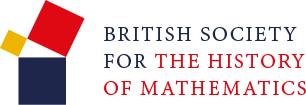A man of no ordinary attainments: the life and work of Robert Leslie Ellis (1817-1859).
A man of no ordinary attainments: the life and work of Robert Leslie Ellis (1817-1859).
A meeting of the NWO VENI Grant A New History and Philosophy for the Exact Sciences, organized in collaboration with Trinity College, Cambridge, and the Descartes Centre, Utrecht University.
Almost forgotten today, the English polymath Robert Leslie Ellis (1817-1859) was lauded by his contemporaries as a ‘prodigy of universal genius’ and an ‘ideal of a University man’. Having been privately educated at Bath, reading Xenophon and Virgil and solving equations from the age of 10, Ellis went up to Trinity College, Cambridge in 1836, where he became a pupil of George Peacock and William Hopkins. A great academic career beckoned; he helped D.F. Gregory to found the Cambridge Mathematical Journal in 1837, graduated Senior Wrangler in 1840 and was elected Fellow of Trinity shortly afterwards. During the 1840s, Ellis published major papers on functional and differential equations and probability theory and took on the co-editing, with James Spedding and Douglas Denon Heath, of Francis Bacon’s Works. From 1847, Ellis’ health deteriorated and in 1849, aged 32, he returned home from a grand tour as an invalid, having been struck by rheumatic fever at San Remo. The rest of his short life was spent at Anstey Hall, Trumpington, where he saw much of his friends John Grote and William Walton, to whom he dictated his thoughts on topics ranging from etymology and bees’ cells to Roman law and a projected Chinese dictionary.
This meeting explores for the first time the whole of Robert Leslie Ellis’s life and work, drawing on both his published oeuvre and unpublished manuscripts, notebooks and correspondence. The papers provide a rich picture of Ellis’s biography – youth, education, family, friendships, illness, character, scholarship – and cover a wide range of topics, including the Ellis MSS at Trinity College, Cambridge life in the 1830s-40s, Ellis’s contributions to mathematics, philosophy and classics and his collaborations with D.F. Gregory, Alexander Gooden, William Whewell, Augustus De Morgan and James Spedding.
Confirmed speakers/discussants:
June Barrow-Green (Open University)
John R. Gibbins (University of Cambridge)
Arthur Gibson (University of Cambridge)
David Palfrey (University of Cambridge)
Joan Richards (Brown University)
Jonathan Smith (University of Cambridge)
Stephen Stigler (University of Chicago)
Christopher Stray (Swansea University)
Lukas M. Verburgt (Utrecht University)
Programme:
10:00 Coffee
10:25 Welcome, Boyd Hilton (Cambridge)
10:30-11:00 Jonathan Smith (Cambridge): 'Ellis MSS in the Wren Library'
11:00-11:30 June Barrow-Green (Open University): 'The mathematical education of Robert Leslie Ellis
11:30-12:00 Christopher Stray (Swansea University): 'Family, education and Classics at Trinity'
12:00-12:45 Discussion session #1 w. David Palfrey (Cambridge) & Arthur Gibson (Cambridge)
12:45-13:45 Lunch
13:45-14:15 John R. Gibbins (Cambridge): 'Robert Leslie Ellis, John Grote and the Cambridge Network, 1830-1870'
14:15-14:45 Lukas M. Verburgt (Utrecht University): 'Robert Leslie Ellis, James Spedding and The Works of Francis Bacon: editing and interpreting'
14:45-15:15 Stephen Stigler (University of Chicago): 'Ellis and mathematical statistics'
15:15-16:15 Discussion session #2 w. Joan Richards (Brown University) & Arthur Gibson (Cambridge)
16:15 Visit to Ellis exhibition at the Wren Library
Participation: There are a very small number of seats available. Please register early by sending an email to l.m.verburgt@uu.nl (Lukas Verburgt) and/or jonathan.smith@trin.cam.ac.uk (Jonathan Smith)
Extra: A small exhibition of Ellis materials will be mounted in the Wren Library around the time of the meeting.
